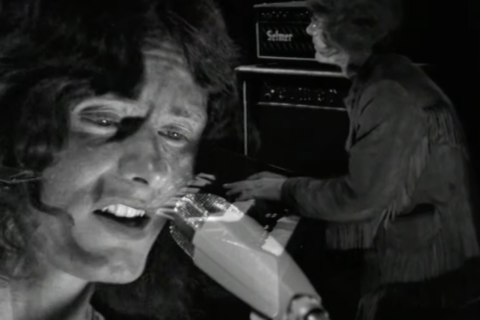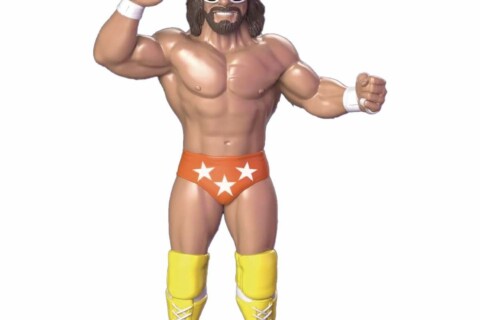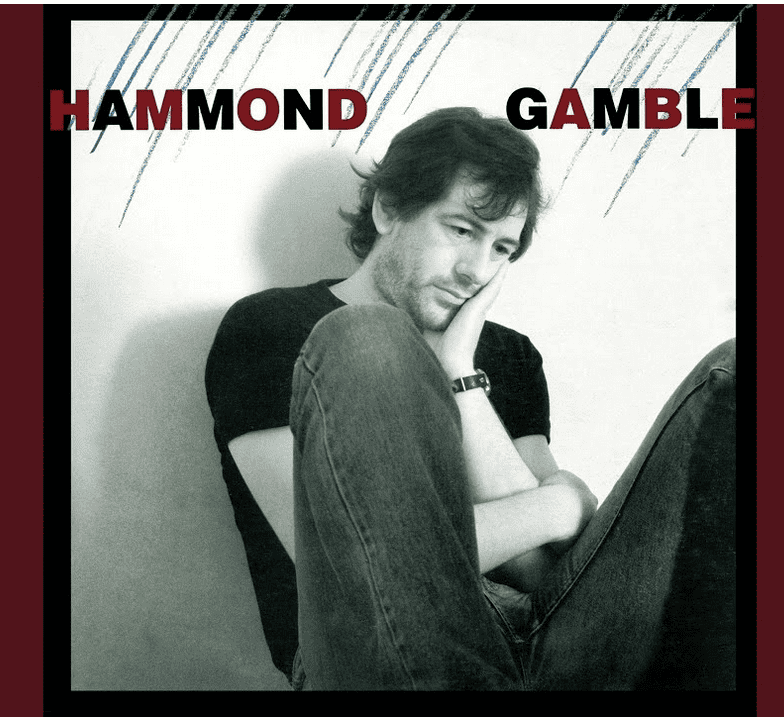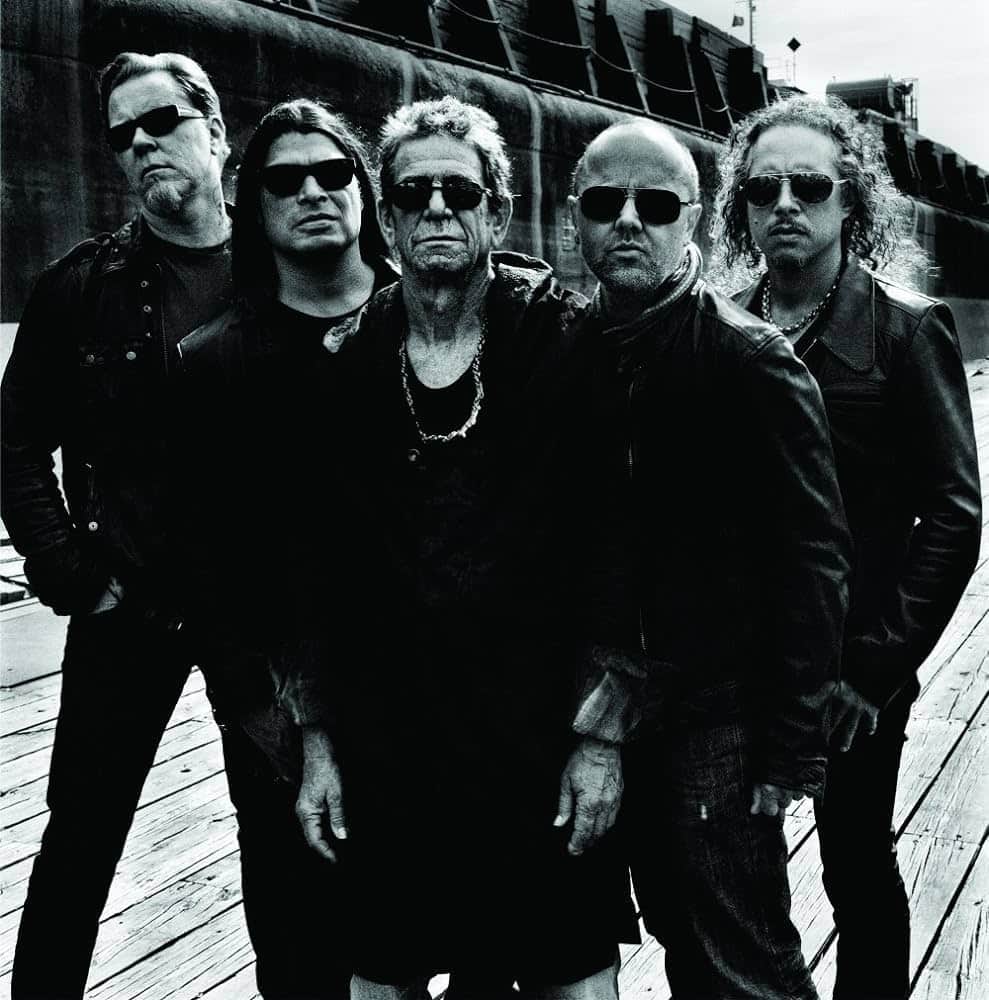Was the rock revolution really ground zero for music? GARY STEEL admits the error of his ways.
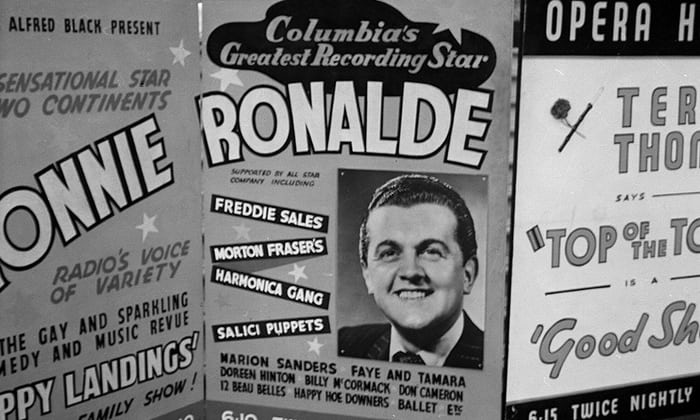 I have this vaguely OCD behavioural characteristic. It’s a wee glitch that has led me over the years to read a lot of shitty books. At school, I desperately wanted to read every book on the library shelves in order, but I gave up because there were just too many. At home, rather than seeking out the books I really want to read, I’ll take one off the top of the dusty pile of Lion’s Club book sale acquisitions that has built up over the decades, regardless of whether I’m feeling a biting need to read it at the time.
I have this vaguely OCD behavioural characteristic. It’s a wee glitch that has led me over the years to read a lot of shitty books. At school, I desperately wanted to read every book on the library shelves in order, but I gave up because there were just too many. At home, rather than seeking out the books I really want to read, I’ll take one off the top of the dusty pile of Lion’s Club book sale acquisitions that has built up over the decades, regardless of whether I’m feeling a biting need to read it at the time.
The thing is, I nearly always feel like I learn something valuable from a book, and a bit like many of the albums I review in my music writing, the experience informs me, whether it’s ‘my cup of tea’ or not.
So, a few months back I was sorting through my late mother’s books when I had a compulsion to set up a pile that for one reason or another, piqued my curiosity. My OCD tendencies are rather submerged these days, so I was able to donate a large box of religious books to the local church without any burning need to read them first.
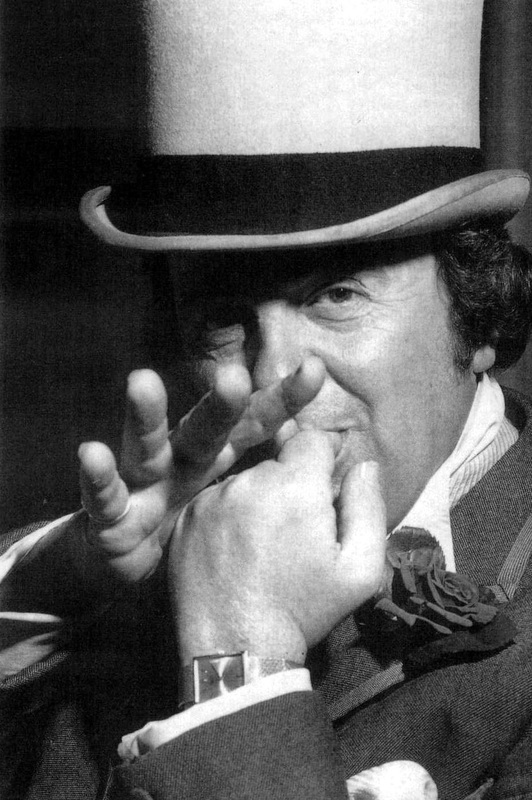 It’s fair to say that there are many books that I’d much rather read than Ronnie Ronalde’s 1998 memoir, Around The World On A Whistle, but I found myself drawn to it. I grew up hearing Ronalde 78’s and albums, and my dad spun his singing and whistling hit, ‘If I Was A Blackbird’, so many times on the old portable Pye radiogram that it’s permanently burnt into my psyche.
It’s fair to say that there are many books that I’d much rather read than Ronnie Ronalde’s 1998 memoir, Around The World On A Whistle, but I found myself drawn to it. I grew up hearing Ronalde 78’s and albums, and my dad spun his singing and whistling hit, ‘If I Was A Blackbird’, so many times on the old portable Pye radiogram that it’s permanently burnt into my psyche.
By the time I discovered rock, however, Ronalde was already a relic of my parents’ generation. It wasn’t my music, it was their music, and it seemed stuffy and hopelessly fuddy-duddy, while the rock revolution represented a complete break from all of that yearning, sugary, post-WWII entertain the troops stuff.
As an adolescent in the early ‘70s, Ronalde and his ilk represented everything I despised. “Tear down the wall, motherfuckers”, sung the Jefferson Airplane, and I wanted to be part of the revolution. The rock revolution was ground zero, completely new, had no thread connecting it to all that crappy stuff my parents loved. And it wasn’t authentic – it was merely an entertainment, something to take people’s minds off the dull monotony of life, not something to edge them towards a new way of thinking and living.
But reading Ronalde’s memoir confirmed something I’d suspected for quite some time: the rock generation were full of shit, entitled and mollycoddled boomers with too much time and money and freedom to know what to do with.
Don’t get the wrong idea, though. Ronalde doesn’t say anything derisive about the rock revolution. In fact, in its 304 pages, there’s nothing at all about rock, except a pleasant tale about meeting Meatloaf (of all things!) when he stayed in one of Ronalde’s hotels.
What impressed me about Around The World On A Whistle was Ronalde’s dignity, his perseverance, and his insistence on enjoying a life that began with real hardship. And also, that for him, the music-hall style existence that comprised the entertainment scene in Britain during the ‘30s, ‘40s and ‘50s was authentic. This was the way the lower classes got their music and entertainment thrills, and while it may have been low rent it’s insulting to suggest that it was meaningless to the hordes that enjoyed it.
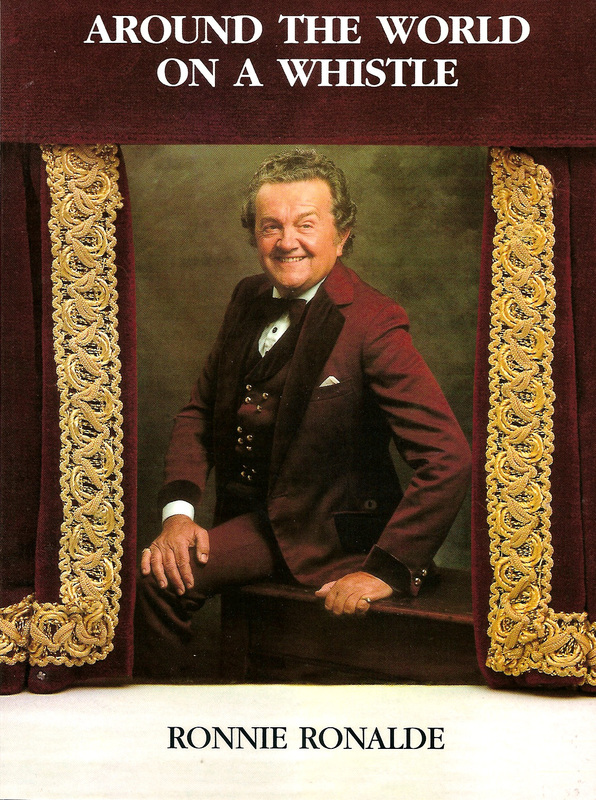 Around The World On A Whistle has the whiff of vanity publishing about it. Published in New Zealand during a period in which the elderly Ronalde lived in Silverdale, Auckland (he subsequently moved with his wife to Australia’s Gold Coast and eventually back to the UK where he died in 2015), it’s the kind of book that, while never less than fascinating, would have benefited a damn fine editing job and someone to squeeze a lot more information from the singing whistler. His was an interesting life, but there’s a sense that much is omitted for reasons of good taste or self-censorship, including a complete lack of information about romantic interests prior to his mid-life marriage.
Around The World On A Whistle has the whiff of vanity publishing about it. Published in New Zealand during a period in which the elderly Ronalde lived in Silverdale, Auckland (he subsequently moved with his wife to Australia’s Gold Coast and eventually back to the UK where he died in 2015), it’s the kind of book that, while never less than fascinating, would have benefited a damn fine editing job and someone to squeeze a lot more information from the singing whistler. His was an interesting life, but there’s a sense that much is omitted for reasons of good taste or self-censorship, including a complete lack of information about romantic interests prior to his mid-life marriage.
I wish the guy were still alive because there are so many things I’d love to quiz him about. The scene and entertainment circuit he describes so well has completely vanished, and for a large part it was a live entertainment scene, so it’s not as well documented on record as it might have been.
I would love to have asked him if he ever listened to pop music after about 1960 and whether he saw any threads linking later music developments to the world he inhabited in the ‘40s and ‘50s. Because to me, those connections have now become crystal clear.
It never occurred to me when I blew my tiny mind listening to The Beatles’ Sergeant Pepper’s Lonely Hearts Club Band – still often voted the seminal release of the rock revolution of the late ‘60s – that it was in any way connected to what came before. But taking in the beautifully remixed reissue last year I found myself reflecting on the problematic songs: the tracks that the critics always found wanting. Songs like ‘When I’m 64’ and ‘She’s Leaving Home’.
The Beatles, like all the other British Invasion bands, were supposed to have exorcised all the notable English influences in favour of more gritty Americana: blues, rhythm and blues and rock and roll, as well as the nascent soul scene represented by Spector’s girl groups and Motown. But, having rejected the punishment of touring and immersed themselves in the creative potential of the recording studio, with George Martin’s considerable help they came up with a record that now, in many ways, sounds about as quintessentially, quaintly English as Noel Coward or, um… Ronnie Ronalde.
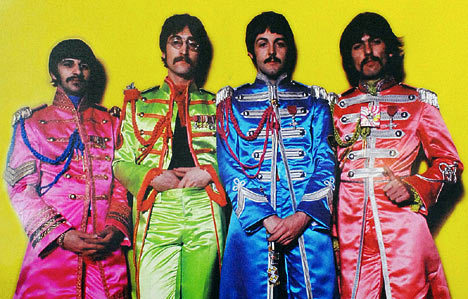 So-called authenticity in rock relied on the flagellating of those American influences, but while that landmark album and everything that followed certainly still rocked out at times, English bands from that point on felt much more at ease about their Englishness; hence, the genius songs of Ray Davies and The Kinks.
So-called authenticity in rock relied on the flagellating of those American influences, but while that landmark album and everything that followed certainly still rocked out at times, English bands from that point on felt much more at ease about their Englishness; hence, the genius songs of Ray Davies and The Kinks.
By contrast, if you look across to France, there was a country, and a scene, that while taking on certain of the styles and fashionable sensibilities of rock, remained essentially in thrall to its own musical and cultural heritage. As colonisers, I guess it was natural for the British to soak up the music of America, still a new country with a myriad of vital new strains oozing through its cultural fabric. But at the same time, it was somewhat inevitable that, having rejected their own heritage bands like The Beatles would end up getting back to their roots. After all, they did grow up in the 1950s in an environment where people by and large still got their entertainment the old-fashioned way.
There is, of course, something deeply uncool and rather bland about Paul McCartney. On one level, ‘When I’m 64’ is brilliant – memorable and beautifully crafted – but it lacks the wit and incisive characterisations and commentary of something like The Kinks’ ‘Dedicated Follower Of Fashion’.
‘She’s Leaving Home’ also gets slammed, despite its gorgeous use of string quartet and its utterly spellbinding composition and arrangement. But it’s not rock, is it? No, not really, and that’s true of quite some portions of Sergeant Pepper’s, with its burlesque touches and circus moves.
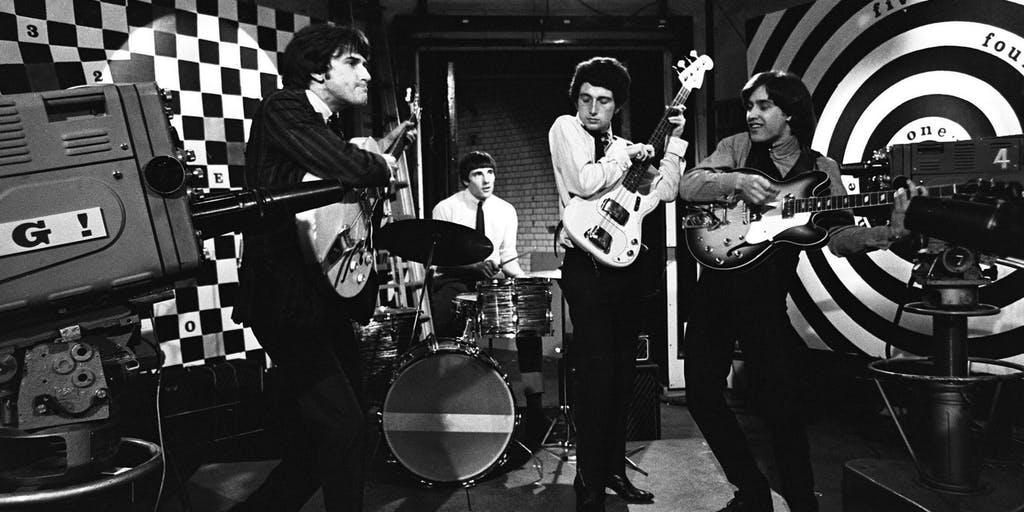 Does any of this make it inauthentic? Of course not, it’s just a really good example of how influences will out when they get a chance. Many years later, of course, Paul McCartney made it quite plain on several projects that he was influenced by Broadway and ‘the great American songbook’, and it was clear that his affection for these pre-rock and roll tunes and styles was as valid to him as anything with more street cred.
Does any of this make it inauthentic? Of course not, it’s just a really good example of how influences will out when they get a chance. Many years later, of course, Paul McCartney made it quite plain on several projects that he was influenced by Broadway and ‘the great American songbook’, and it was clear that his affection for these pre-rock and roll tunes and styles was as valid to him as anything with more street cred.
Listening back to many of my favourite bands from the psychedelic era now I’m suddenly profoundly aware of those invisible threads that linked the bands to previous, rejected eras. There was the cowboy music that came through the work of the Grateful Dead and quite a few of the other San Franciscan hippy bands. Frank Zappa was marinated in early ‘50s blues and rhythm and blues rather than rock and roll. Heck, someone has probably won a handsome scholarship and written an unreadable academic book about all of this, because there are so many examples of rock ‘authenticity’ being ‘poisoned’ by the sneaky influence of a previous generation’s music that it really demands a major analyses.
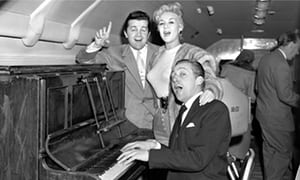 And when you move on to the ‘70s, the links become more obvious, especially when you look at an old episode of Top Of The Pops and catch all those post-glam bands like Racy who really belong back in the 1940s.
And when you move on to the ‘70s, the links become more obvious, especially when you look at an old episode of Top Of The Pops and catch all those post-glam bands like Racy who really belong back in the 1940s.
I feel good about coming to terms with Ronnie and his whistling around the world, and although I’ll always prefer The Beatles, it’s humbling to get off my high horse of moral and cultural superiority and give those earlier generations some respect.





